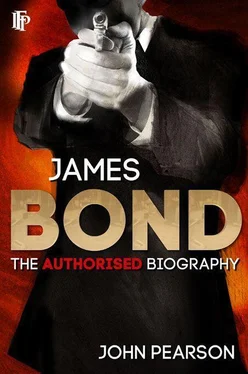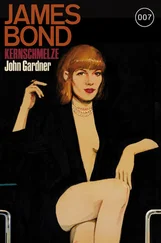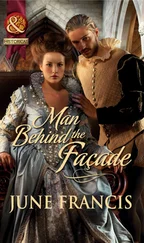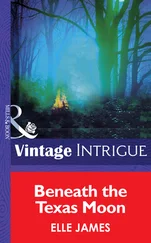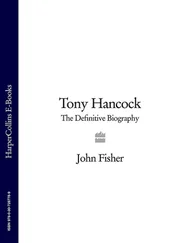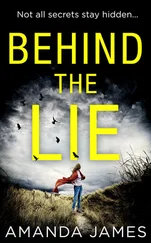John Pearson - James Bond - The Authorised Biography
Здесь есть возможность читать онлайн «John Pearson - James Bond - The Authorised Biography» весь текст электронной книги совершенно бесплатно (целиком полную версию без сокращений). В некоторых случаях можно слушать аудио, скачать через торрент в формате fb2 и присутствует краткое содержание. Год выпуска: 2008, ISBN: 2008, Издательство: Random House, Жанр: Шпионский детектив, на английском языке. Описание произведения, (предисловие) а так же отзывы посетителей доступны на портале библиотеки ЛибКат.
- Название:James Bond: The Authorised Biography
- Автор:
- Издательство:Random House
- Жанр:
- Год:2008
- ISBN:9780099502920
- Рейтинг книги:4 / 5. Голосов: 1
-
Избранное:Добавить в избранное
- Отзывы:
-
Ваша оценка:
- 80
- 1
- 2
- 3
- 4
- 5
James Bond: The Authorised Biography: краткое содержание, описание и аннотация
Предлагаем к чтению аннотацию, описание, краткое содержание или предисловие (зависит от того, что написал сам автор книги «James Bond: The Authorised Biography»). Если вы не нашли необходимую информацию о книге — напишите в комментариях, мы постараемся отыскать её.
James Bond: The Authorised Biography — читать онлайн бесплатно полную книгу (весь текст) целиком
Ниже представлен текст книги, разбитый по страницам. Система сохранения места последней прочитанной страницы, позволяет с удобством читать онлайн бесплатно книгу «James Bond: The Authorised Biography», без необходимости каждый раз заново искать на чём Вы остановились. Поставьте закладку, и сможете в любой момент перейти на страницу, на которой закончили чтение.
Интервал:
Закладка:
I replied immediately, begging her to send the letters. There was no reply.
I wrote several times – still without success. Finally I decided to take Miss Kunzler's advice and check the Eton records for a boy called Bond. Fleming had entered Eton in the autumn term of 1921. Apart from saying that James Bond was younger than Ian Fleming, Miss Kunzler had been vague about his age. (Supposing, of course, that an Etonian called Bond had really been at Kitzbuhel in 1938.) I checked through the whole of the 1920s. There were several Bonds, but none of them called James and none of them in Fleming's old house. Clearly Miss Kunzler was wrong, but out of curiosity I checked on through the early thirties. And here I did find something. There actually was a James Bond who was recorded having entered Slater's House in the autumn term of 1933. According to the Eton list he stayed just over two years; his name had disappeared from the spring list of 1936.
So much for the records, which neither proved nor disproved what Miss Kunzler said. An old Etonian called James Bond certainly existed, but he seemed too young to have known Fleming. It was unlikely that anyone of this age could have been caught up in the secret-service world by 1937.
I tried to find out more about this young James Bond, but drew a blank. A puzzled secretary in the school office said there appeared to be no file on him – nor had they any records of his family, nor of what happened to him. She suggested contacting the Old Etonian Society. I did, but again without success. All they could offer were the names of some of Bond's contemporaries who might have kept in touch with him.
I wrote to eighteen of them. Six replied, saying that they remembered him. The consensus seemed to be that this James Bond had been an indifferent scholar, but physically strong, dark-haired and rather wild. One of the letters said he was a moody boy. None of them mentioned that he had any particular friends, but no one had bullied him. There was no definite information about his home life or his relatives. The nearest to this was a passage which occurred in one of the letters:
I've an idea [my correspondent wrote] that there must have been some sort of trouble in the family. I have no details. It was a long time ago and boys are notoriously insensitive to such things. But I have a clear impression of him as a boy who had suffered some sort of loss. He was the type of brooding, self-possessed boy who stands apart from his fellows. I never did hear what became of him .
Nor, it appeared, had anybody else.
This was distinctly tantalizing for, as close readers of the Bond books will recall, these few extremely inconclusive facts find an uncanny echo in the obituary of James Bond, supposedly penned by M. himself, which Fleming published at the end of You Only Live Twice . According to this source, James Bond's career at Eton had been ‘brief and undistinguished’.
There was no reference in any of the letters to the reason M. gave for James Bond's departure – ‘some alleged trouble with one of the boys’ maids’. But there were two other interesting parallels. According to M. both of Bond's parents were killed in an Alpine climbing accident when he was eleven and the boy was subsequently described as being athletic but ‘inclined to be solitary by nature’.
None of this proved that the mysterious James Bond who had entered Eton in 1933 was Fleming's hero. As any libel lawyer knows, coincidences of exactly this sort are a hazard every author faces. Just the same, it was all very strange.
My next step was clear. Bond's obituary goes on to say that, after Eton, the young reprobate was sent to his father's old school, Fettes. Accordingly I wrote to the school secretary asking if he could tell me anything about a boy called Bond who may have entered the school some time in 1936. But before I could receive a reply, another letter came which altered everything. Inside a large brown envelope bearing a Vienna postmark was a short official note from an Austrian lawyer. He had the sad task of informing me that his client, Fraulein Kunzler of 27, Friedrichsplatz had died, not unexpectedly, in her sleep some three weeks earlier. He had the honour now of settling her small estate. Among her papers he had found a note saying that a certain photograph was to be sent to me. In accordance with the dead woman's wishes he had pleasure in enclosing it. Would I be so kind as to acknowledge?
The photograph proved to be a sepia enlargement of a snapshot showing a group of hikers against a background of high mountains. One of the hikers was a girl, plump, blonde, extremely pretty. On one side of her, unmistakable with his long, prematurely melancholy Scottish face, stood Ian Fleming. On the other was a burly, very handsome, dark-haired boy apparently in his late teens. The trio seemed extremely serious. I turned the photo over. On the back there was a note in purple ink.
This is the only picture I could find. There seem to be no letters, but this is James and Ian out in Kitzbuhel in 1938. The girl with them is me, but somehow I don't think you'd recognize me now .
So much for poor Miss Kunzler.
The photograph, of course, changed everything. If the young tough really was James Bond – and why should the defunct Miss Kunzler lie? – something extremely odd had happened. The whole idea of Fleming and the James Bond saga needed to be revised. Who was this James Bond Fleming had evidently known? What had happened to him since 1938? How far had Ian Fleming used him as a model for his books? The reality of Bond opened up a range of fascinating speculation.
I had not heard from Fettes, and there was still precious little evidence – a photograph, an entry in the Eton Register, a handful of coincidences – enough to pose the mystery rather than solve it. But there were certain clear lines now which I could pursue and did – but not for long. I had barely started contacting several of Fleming's friends from the Kitzbuhel days when I was rung up by a man called Hopkins.
Once a policeman, always a policeman – there was no mistaking Mr Hopkins's voice. He understood from certain sources that I was making certain inquiries. He would like very much to see me. Perhaps we could have lunch together? Somewhat incongruously he suggested next day at the National Liberal Club in Whitehall Place.
Mr Hopkins was an unusual Liberal: a big, bald man with outsize eyebrows, he was waiting for me by the bust of Gladstone in the foyer. Something about him seemed to make old Gladstone look a little shifty. I felt the same. We had a table by the window in the big brown dining-room. Brown was the dominating colour – brown Windsor soup, brown walls and furniture. Mr Hopkins, as I noticed now, was wearing a somewhat hairy, dark brown suit. When the soup came he started talking, his sentences interspersed with noisy spoonfuls of brown Windsor soup.
‘This is all off the record, as you'll understand. I'm from the Ministry of Defence. We know about your current inquiries. It is my duty to inform you they must stop.’
‘Why?’
‘Because they are not in the national interest.’
‘Who says they're not?’
‘You must take it from me they're not.’
‘Why should I?’
‘Because if you don't, we'll have the Official Secrets Act down on you just so fast that you won't know what's hit you.’
So much for Mr Hopkins. After brown Windsor we had cottage pie, apparently the staple food of Liberals – nutritious doubtless, but no great stimulus to conversation. I tried getting Mr Hopkins to reveal at least something of his sources. He had been at the game too long for this. When we parted he said, ‘Remember what I said. We wouldn't like any unpleasantness.’
‘Tell that to Mr Gladstone,’ I replied.
Читать дальшеИнтервал:
Закладка:
Похожие книги на «James Bond: The Authorised Biography»
Представляем Вашему вниманию похожие книги на «James Bond: The Authorised Biography» списком для выбора. Мы отобрали схожую по названию и смыслу литературу в надежде предоставить читателям больше вариантов отыскать новые, интересные, ещё непрочитанные произведения.
Обсуждение, отзывы о книге «James Bond: The Authorised Biography» и просто собственные мнения читателей. Оставьте ваши комментарии, напишите, что Вы думаете о произведении, его смысле или главных героях. Укажите что конкретно понравилось, а что нет, и почему Вы так считаете.
